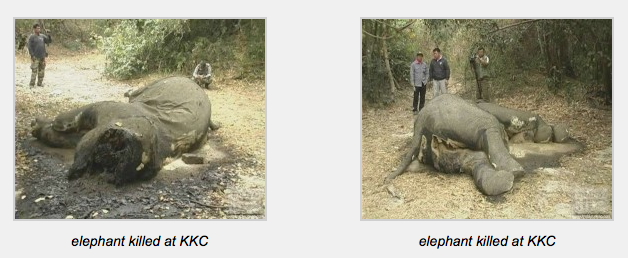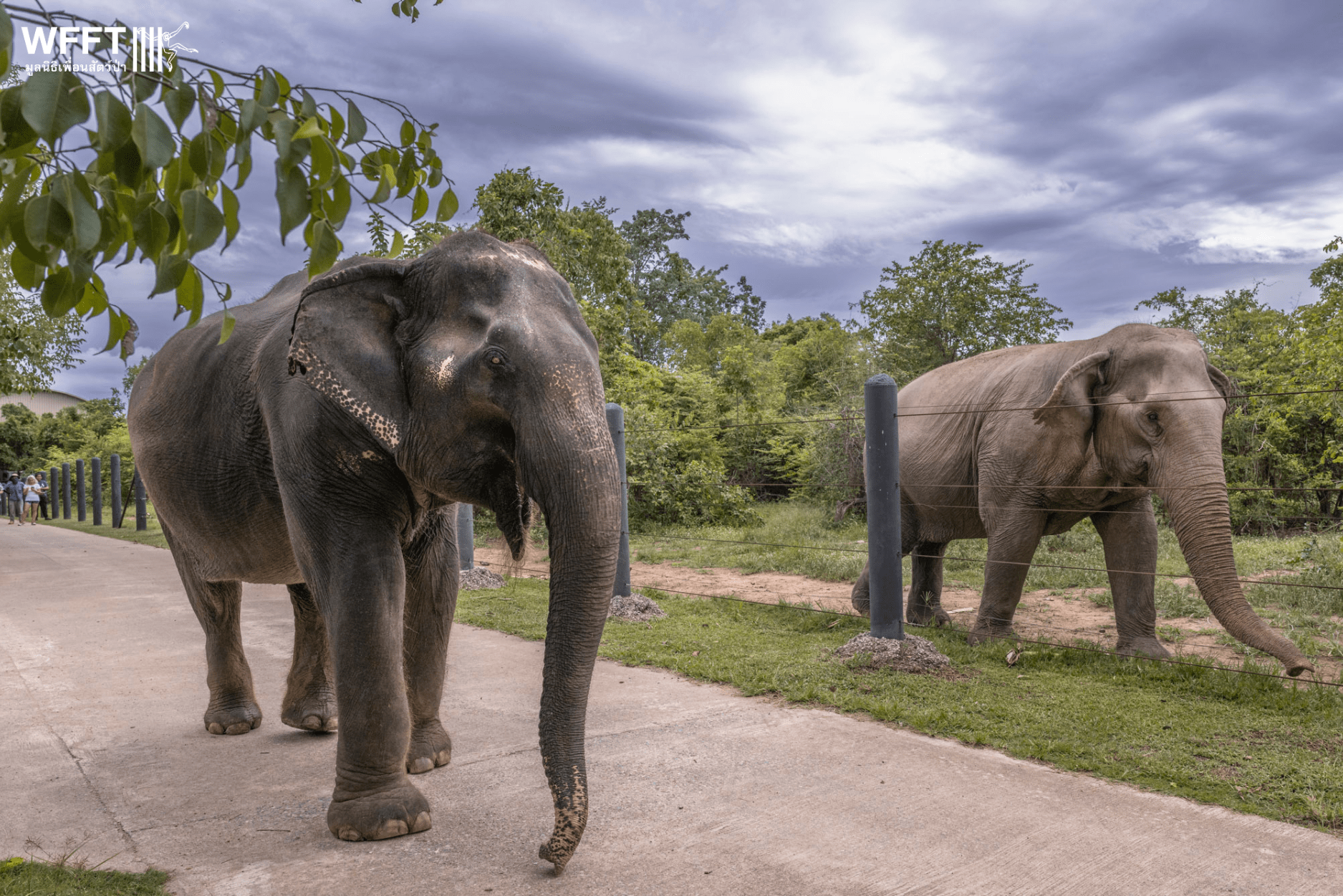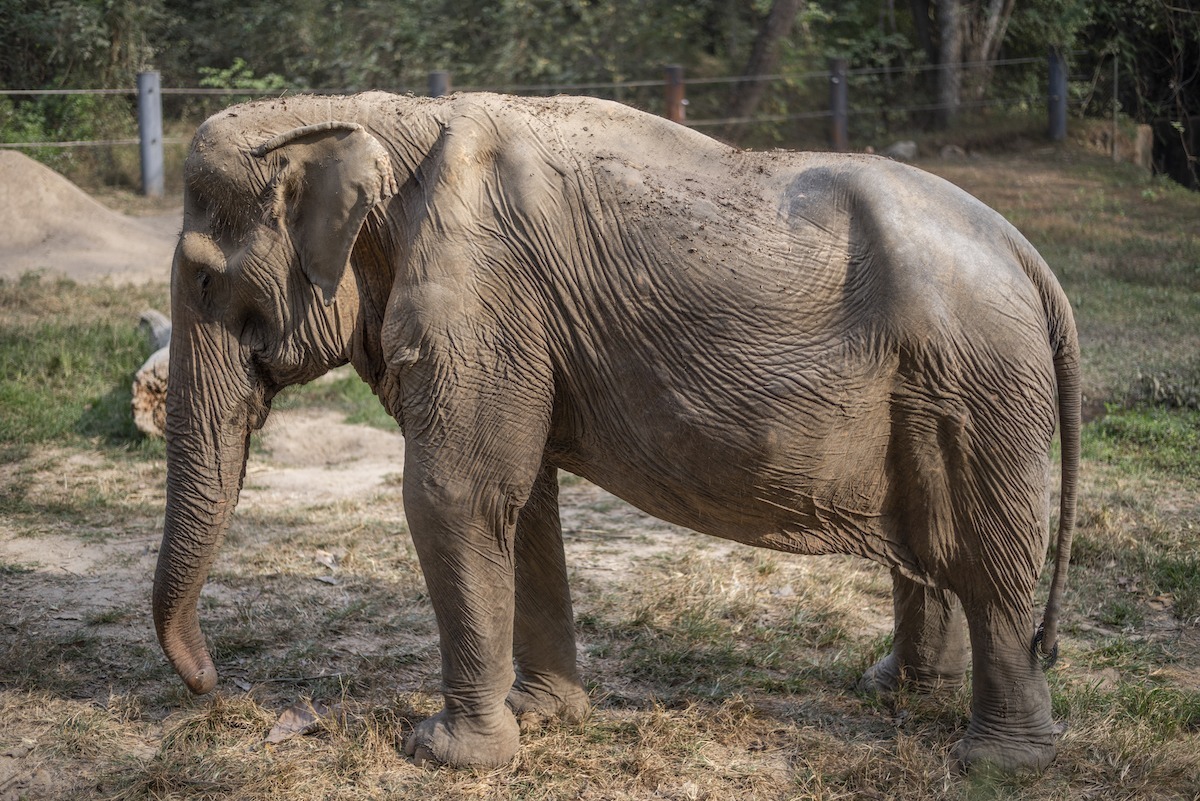Hope for Alicia regaining some sight following a specialist visit.
Thai elephants being killed for tourist dollars

Edwin Wiek
Special to The Nation
(story printed in The Nation on Tuesday 24 January 2012)
http://www.nationmultimedia.com/opinion/Thai-elephants-are-being-killed-for-tourist-dollar-30174341.html
News on elephants in Thailand since the start of this year has been dominated by the brutal killing of wild tuskers in Kaeng Krachan and Kui Buri national parks. At least six wild elephants have been found dead within three weeks – and this is probably just the tip of the iceberg. Both national parks occupy a very large area, with Kaeng Krachan being Thailand’s biggest national park. Combined, the two national parks are home to at least 500 wild elephants.
In one of the first interviews after the discovery of five dead elephants one government official alleged that these animals were killed to provide elephant meat and sexual organs for consumption at wildlife “bush-meat” restaurants on Phuket Island, for visiting foreign tourists. This news was extremely shocking to a big part of the Thai society but to date it has not been proven right. In fact, neither the Natural Resources and Environmental Crime Suppression Division (NRECD), at the Royal Thai Police, or the office of the Phuket governor have found any evidence that such a place exists. Nor can the official that made the statement give any weight to his claim.
It seems like a deliberately made-up claim, for whatever reason, but the real reason for the killing of these elephants could be explained in a much easier way.
The demand for young elephants at elephant camps nationwide is rising because not enough elephants are being born in captivity to meet the demand. Although we see stories in the news every now and then about the birth of babies at elephant camps there are just not enough captive-born calves. This gap in demand and supply is reflected in the prices camp owners and businessmen are willing to pay. A two to four-year-old female, for example, can now fetch a staggering Bt800,000 or up to Bt900,000 each. Baby elephants are being taken out of the jungle in Thailand at any cost. Mothers are being shot and even their nannies and sub-adult males still with the herd trying to protect the calves. Poachers, who have been interviewed, say it is common to kill up to three elephants to take one baby from the forest. Once a few elephants are killed the baby elephant stays close to the killed adults while the rest of the herd usually runs for safety. Poachers then have limited time to get the baby out, fearing the return of the herd and/or any witnesses attracted by the sound of gunshots. This explains why some dead elephants were found with their tusks intact. Removing and selling the tusks would be very lucrative – a small pair would easily fetch Bt100,000 – but it just takes too much time. Groups of poachers like these will receive about Bt300,000 from middlemen for baby elephants at specific places such as Suan Phueng in Ratchaburi and Sai Yok in Kanchanaburi. But this even occurs in the North, in areas such as Tak and Mae Hong Son provinces.
Once the babies have been taken away from their forests they are moved to “safe houses” in border areas controlled by corrupt politicians, government officials and influential businessmen. Here, the young are “tamed” through week-long torture rituals to break their spirit. In many cases, they are then introduced to a “foster-mother”, a captive female elephant. This introduction is particularly important for the future transportation of the elephant out of areas controlled by the criminals. When transported, baby elephants are often said to be the offspring of the captive (legally owned) older female. The law in Thailand stipulates that any captive-born offspring needs to be registered – within nine years! – so, this is a major loophole open to abuse. Lately, however, gangs have been moving baby elephants in the back of closed, modified pick-up trucks. This is even more daring, and shows they have little fear of being caught, which is a clear sign they are backed up by influential people. The profit for these gangs is huge, with elephant camps paying up to Bt900,000 for a baby but the gang only paying the poachers about Bt300,000. Aside from some “costs”, such as bribing officials on the way, they can make up to Bt500,000 per elephant. It has been estimated that baby elephants are transported through Ratchaburi and Kanchanaburi at least twice a week. This suggests an annual turnover of at least 100 elephants or Bt80-90 million with a profit of Bt50 million for the smuggling gang. In the recent past, the Thai government always denied that smuggled elephants were from Thailand, claiming they come from Burma. However, the latest findings in Kaeng Krachan and Kui Buri indicate that this is a problem also exists in Thailand and that it urgently needs to be taken seriously.
There is no need for denial, action has to be taken and it has to be transparent.
For any tourist visiting elephant camps and riding these beautiful animals, the latest information has serious implications. People who ignore what is occurring effectively support the killing and torture of wild-born elephants.
For any government official or politician denying the above, I challenge you to go visit the elephant camps in Ayutthaya, Pattaya, Hua Hin, Samui, Chiang Mai, Phuket, or anywhere else in the country and force the owners of all elephants of up to 20 years of age to allow a DNA check on their animals. That would verify whether young elephants really are the offspring of their alleged mothers.
I strongly believe that over half of all young elephants in tourist camps nationwide are wild-caught. You can prove me wrong by undertaking a long-overdue DNA check. Indeed, I challenge you to verify the status of these glorious animals. This is the only way to reveal the true status of all young elephants and to wipe out this evil trade and the slaughter of a national icon.
Edwin Wiek is secretary-general of the Wildlife Friends Foundation Thailand (WFFT). He can be contacted at edwin.wiek@wfft.org.




